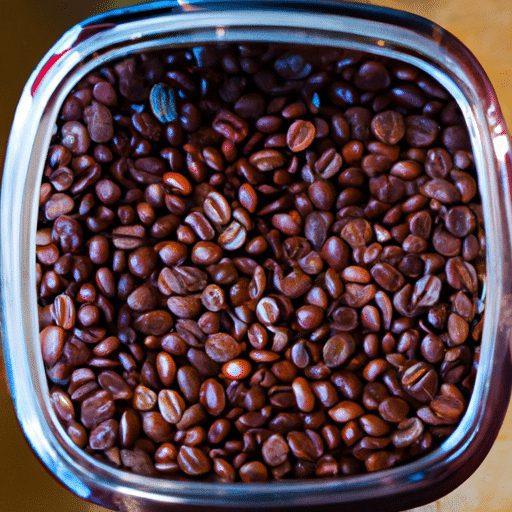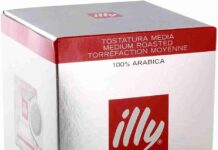Coffee lovers often find themselves debating the age-old question: Is it alright to leave coffee beans in the hopper? We’ve all been there, staring at that shiny espresso machine, pondering whether it’s better to preserve the freshness of our precious beans or save ourselves the hassle of constant refilling. Well, fear not fellow caffeine enthusiasts, because today we are here to shed some light on this hot topic. So grab your favorite brew and join us as we uncover the truth behind leaving coffee beans in the hopper.
The Impact of Oxygen Exposure
Oxygen and Coffee Beans
When it comes to preserving the freshness and quality of coffee beans, oxygen exposure is a critical factor to consider. Oxygen can have detrimental effects on coffee beans, causing them to lose flavor and aroma.
Effects of Oxygen Exposure on Coffee Beans
Leaving coffee beans exposed to oxygen for an extended period can lead to oxidation, which ultimately affects the taste and quality of the brewed coffee. Oxygen exposure accelerates the process of coffee bean staling, leading to a loss of vibrant flavors and aromas. The oxygen in the air interacts with the compounds present in the coffee beans, causing them to deteriorate. Thus, it is best to minimize oxygen exposure to maintain the optimal flavor and freshness of the beans.
The Role of Moisture
Moisture and Coffee Beans
Moisture is another element that can significantly impact the quality of coffee beans. Coffee beans are hygroscopic, meaning they can absorb moisture from the surrounding environment. Moisture can lead to the growth of mold and mildew on the beans, resulting in an unpleasant taste and potential health risks.
Effects of Moisture on Coffee Beans
When coffee beans absorb moisture, they swell, and their cellular structure can be compromised. This can result in uneven extraction during brewing and affect the balance of flavors in the final cup of coffee. Additionally, moisture can accelerate the degradation process of the coffee beans, making them go stale more quickly. To ensure the best flavor and longevity of your coffee beans, it is essential to store them in a dry and airtight container.
Grind Consistency
The Importance of Consistent Grind
Grind consistency is paramount in achieving a delicious and well-extracted cup of coffee. The size and uniformity of the coffee grounds directly affect the extraction process and the resulting flavor profile. Consistent grind size ensures proper extraction, allowing the water to evenly extract the desirable compounds from the coffee beans.
Impact of Leaving Coffee Beans in the Hopper on Grind Consistency
When coffee beans are left in the hopper for an extended period, they can absorb moisture from the air, leading to a loss of grind consistency. Moisture can cause the coffee beans to swell, resulting in uneven grinding. Inconsistent grind size can lead to over-extraction or under-extraction, resulting in a subpar coffee experience. To maintain grind consistency, it is best to store coffee beans separately from the grinder, grinding only the amount needed for each brew.
Flavor Preservation
Flavor Profile of Coffee
The flavor profile of coffee is a delicate and intricate combination of various compounds present in the beans. These compounds contribute to the unique taste notes and aromatic qualities that coffee enthusiasts cherish. Preserving the flavor profile of coffee beans is crucial in delivering a satisfying and enjoyable cup.
How Leaving Coffee Beans in the Hopper Affects Flavor
Leaving coffee beans in the hopper exposes them to oxygen and moisture, both of which can degrade the flavorful compounds in the beans. The exposure to oxygen accelerates the oxidation process, leading to a loss of vibrant flavors. Additionally, moisture can cause the beans to go stale more quickly, diminishing the subtle nuances in taste. To preserve the flavor of your coffee beans, it is best to store them in an airtight container away from light, moisture, and oxygen.
Shelf Life of Coffee Beans
Factors Affecting Shelf Life
The shelf life of coffee beans can vary depending on several factors, including the quality of the beans, the roasting process, and the storage conditions. Coffee beans contain oils and volatile compounds that are susceptible to degradation over time. To ensure maximum freshness and shelf life, it is important to consider these factors.
How Leaving Coffee Beans in the Hopper Shortens Shelf Life
Leaving coffee beans in the hopper exposes them to oxygen and moisture, two factors that can accelerate the degradation process. Oxygen can cause the beans to go stale more quickly, while moisture can lead to the growth of mold and mildew. Both of these factors can significantly shorten the shelf life of coffee beans. To extend the shelf life of your beans, it is advisable to store them in a cool, dry place in an airtight container.
Impact on Brewing Process
Coffee Beans and Brewing
The brewing process relies heavily on the quality and characteristics of the coffee beans. From grind size to water temperature, every aspect contributes to a well-extracted cup of coffee.
Effects of Leaving Coffee Beans in the Hopper on Brewing
Leaving coffee beans in the hopper for an extended period can impact the brewing process in several ways. Inconsistent grind size, caused by moisture absorption, can lead to under-extraction or over-extraction of the coffee grounds, resulting in an imbalanced and less flavorful cup of coffee. Additionally, stale beans due to oxygen exposure can result in a flat and lackluster taste. To ensure the best brewing outcome, it is recommended to store coffee beans separately from the grinder and only grind what is needed for each brew.
Cleaning and Maintenance
Regular Cleaning of the Hopper
Proper cleaning and maintenance of the coffee grinder, specifically the hopper, is essential for optimal performance and flavor preservation. Regular cleaning helps remove any residue or oil buildup that can negatively impact the quality of the coffee grounds.
Proper Maintenance of the Coffee Grinder
In addition to regular cleaning, proper maintenance of the coffee grinder is crucial. This includes ensuring the burrs are properly aligned and sharpened to achieve consistent grind size. Regular maintenance can help prolong the lifespan of the grinder and ensure a consistently high-quality grind.
Coffee Storage Best Practices
Optimal Coffee Storage Conditions
To maintain the freshness and quality of coffee beans, it is important to store them under optimal conditions. This includes protecting them from oxygen, moisture, light, and excessive heat.
Alternatives to Leaving Coffee Beans in the Hopper
Instead of leaving coffee beans in the hopper, consider storing them in an airtight container in a cool, dark place. Portioning the beans into smaller amounts to be used within a few days can help maintain their freshness. Additionally, investing in a quality coffee bean storage container that minimizes oxygen exposure can further extend the shelf life of the beans.
Expert Opinions
Specialists’ Recommendations
Coffee specialists recommend storing coffee beans in airtight containers away from heat, light, moisture, and oxygen exposure to preserve their flavor and freshness. They emphasize the importance of grinding only the amount of coffee needed for each brew to maintain grind consistency and minimize degradation.
Opinions from Coffee Professionals
Coffee professionals also stress the significance of avoiding prolonged storage in the hopper, as it can lead to loss of flavor, staleness, and inconsistency in the brewing process. They highlight the importance of balancing convenience and quality by prioritizing fresh grinding and proper storage practices.
Conclusion
Balancing Convenience and Quality
While it may be convenient to leave coffee beans in the hopper, it is important to consider the potential impact on flavor, grind consistency, shelf life, and the overall brewing process. By prioritizing freshness, proper storage, regular cleaning, and maintenance, coffee enthusiasts can achieve a superior coffee experience.
Determining Personal Preferences
Ultimately, personal preferences play a significant role in the decision of whether to leave coffee beans in the hopper. Some individuals may prioritize convenience and are willing to compromise on taste, while others may prioritize flavor and freshness above all else. Understanding the potential effects of various storage practices can empower coffee lovers to make informed choices that align with their preferences and desired coffee experience.





































